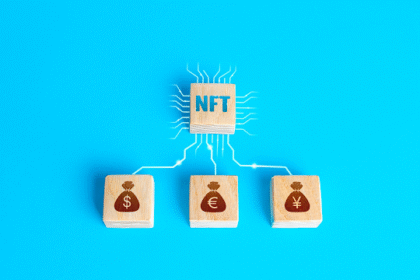1. Enhanced Content Creation
Artificial Intelligence is revolutionizing content creation on social media platforms. By leveraging natural language processing (NLP) technologies, AI tools can generate written content that is engaging, coherent, and tailored to specific audiences. Furthermore, machine learning algorithms analyze user engagement metrics to optimize posting times and content types, ensuring that businesses can connect effectively with their target demographic. Automated content generators like GPT-3 produce high-quality posts, captions, and even entire articles, reducing the burden on social media managers while enhancing creative output.
2. Personalized User Experience
AI-driven algorithms enable social media platforms to offer personalized experiences by analyzing user behaviors, preferences, and interactions. The result is highly curated content feeds that show users the types of posts, videos, and advertisements they are likely to engage with. For example, Instagram uses AI to show users tailored content based on their past likes and shares, which keeps users engaged for longer periods. This personalization helps brands reach their target audiences more effectively, transforming the way consumers interact with content.
3. Advanced Analytics and Insights
AI technologies are transforming the way brands understand and analyze social media data. With advanced analytics tools, companies can track user interactions, sentiment analysis, and engagement metrics to gauge their social media performance. AI can identify trends and patterns in real time, allowing brands to adjust their strategies promptly. For instance, platforms like Hootsuite and Sprout Social employ AI to provide actionable insights that help organizations refine their content strategies, target the right audience segments, and measure ROI accurately.
4. Automated Customer Service
Social media channels have become vital for customer service, and AI-powered chatbots are leading this transformation. These bots provide instant responses to customer inquiries, ensuring that users receive timely assistance. By using machine learning, chatbots can learn from interactions to improve their responses and handle more complex issues over time. This not only enhances user satisfaction but also reduces operational costs for businesses. Platforms such as Facebook Messenger and WhatsApp increasingly integrate these chatbots, allowing brands to offer 24/7 support without the need for human intervention.
5. Influencer Marketing Optimization
AI is becoming indispensable in the realm of influencer marketing. Companies now use AI tools to identify key influencers within their niche by analyzing engagement metrics, audience demographics, and authenticity. This data-driven approach allows brands to partner with influencers who align with their values and target audience effectively. Additionally, AI evaluates the performance of influencer campaigns in real-time, helping marketers understand which collaborations yield the best results and refining future partnerships.
6. Deepfake and Synthetic Media
The rise of deepfake technology, powered by AI, is reshaping how content is created and consumed on social media. Through AI-driven image and video editing tools, users can create hyper-realistic synthetic media, providing opportunities for creative storytelling. While the potential for misuse raises ethical concerns, this technology also offers innovative possibilities for brands to engage their audiences in novel ways, such as personalized advertisements that feature synthetic models or celebrity endorsements tailored to individual users.
7. Enhanced Ad Targeting
AI-driven algorithms contribute significantly to more effective ad targeting on social media. By analyzing user data such as interests, behaviors, and demographics, AI can help brands create highly targeted advertising campaigns. For instance, Facebook’s advertising platform uses machine learning to predict which ads are most likely to be clicked by specific user segments. This precision targeting increases conversion rates and ensures that marketing budgets are spent more efficiently, leading to higher returns on investment.
8. Content Moderation and Safety
Social media platforms face ongoing challenges concerning inappropriate content and online harassment. AI plays a crucial role in content moderation by quickly analyzing and identifying harmful posts or comments based on predefined guidelines. Advanced machine learning models can distinguish between acceptable and unacceptable content while reducing the reliance on human moderators. This not only maintains a healthier online environment but also strengthens user trust in the platform’s commitment to safety.
9. Visual Recognition and Interactivity
AI’s image recognition capabilities are also reshaping social media interactions. Platforms are integrating visual search technologies, allowing users to search for products or related content using images rather than text. For instance, Pinterest’s visual search tool enables users to discover items similar to those in photos they upload. This capability drives engagement, allowing users to interact more deeply with content while providing brands with invaluable data about consumer preferences and interests, paving the way for more innovative marketing strategies.
In summary, AI is dramatically reshaping social media through enhanced content creation, personalized user experiences, advanced analytics, automated customer service, influencer marketing optimization, deepfake technology, enhanced ad targeting, content moderation, and visual recognition. Each of these areas presents unique opportunities for businesses and consumers alike, fundamentally altering how social media operates and how brands connect with their audiences.




